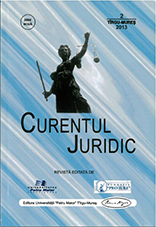
Judicial Review of Security Council Decisions – A Modern Vision of the Administration of Justice?
The Security Council’s new activism, particularly in the field of “individualized sanctions”, gives impetus to the debate on whether, and to what extent, the most powerful organ of the UN should be subject to judicial review. This article analyses and categorizes the various strategies already employed in international courts, such as, e.g., “denial of justice”, incidental control, full review of implementing acts, the “as-long-as” rule, and various instruments of judicial self-restraint. The author suggests that “jurisdiction”, understood as encompassing the procedural aspects of the problem, should be regarded as a “door-opener” to judicial review. As regards its substantive dimension, the existence of primary responsibilities on both sides (the Security Council and the judiciary) should be taken into consideration. The author demonstrates that the principle of loyalty and cooperation means, on the one hand, respect by the Security Council for judicial review from inside of the UN system, and on the other hand, respect for Security Council prerogatives from external courts. Taking into account the evolution of a duty of loyal cooperation between different systems within the global legal order, and in expectation that the ICJ will defend the international rule of law, we may speak of a “modern vision of the administration of justice.”
More...
